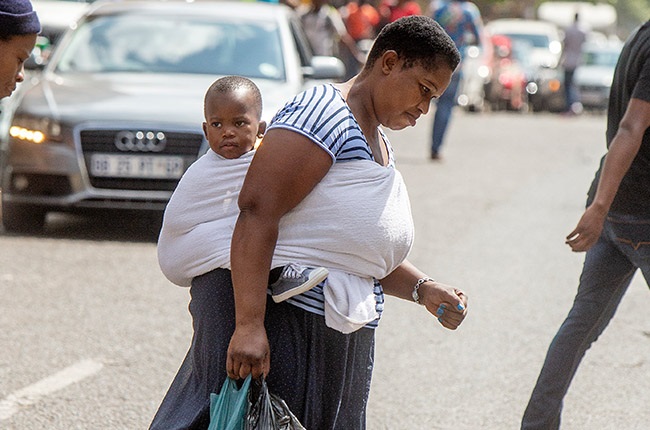
Growing up, there were many cultural practices around me that I neither understood, nor knew the significance of. However, as I grew older, I started to understand the meaning behind them and appreciate the richness of my culture, writes Botho Molosankwe.
I'm a Motswana, born and raised in a village called Lomanyaneng in Mahikeng in the North West.
Growing up, there were many cultural practices around me that I neither understood, nor knew the significance of.
However, as I grew older, I started to understand the meaning behind them and appreciate the richness of my culture.
For example, when two people are about to get married and the families have met, discussed magadi (lobola) and set the wedding date, their uncles install a tiny white flag at the soon-to-be spouses' childhood homes a few weeks or two months before the wedding. The flag symbolises peace and happiness and everyone who sees it knows that a wedding will be held at that house very soon.
Once you see that flag, you don't need an invitation to be there and celebrate with the couple on the wedding day. Even passers-by can just stop at the house, eat a hearty meal and be on their way again.
However, of all the cultural practices where I come from, the one I find fascinating is around childbirth - and I had first-hand experience of that when I gave birth to my son 19 years ago.
READ | South Africa’s multicultural heritage takes centre stage at the Folklore Festival
In my culture, a woman who has just given birth needs to have a period of confinement (botsetsi), lasting between two and six months. Depending on the size of the house, she is supposed to confine herself and the baby to a room where all she is supposed to do is eat, heal from the birth and nurse the baby. She doesn't share food or utensils with the rest of the household.
But she isn't completely alone. Her mother, grandmother or an elderly female relative is allowed to enter the room and take care of her or help her take care of the baby, cook, clean, and wash utensils.
After giving birth, the new mother has to have a cloth wrapped tightly around her abdomen (only if the birth was natural and not via C-section) to help it return to its original state.
She also has to eat soft porridge while lying on her stomach to help flatten her abdomen.
Visitors do not frequent the house where there is a new baby.
OPINION | Jacob Cloete: The attempted erasure of the Khoekhoe and San
However, if they have to, they wait a few minutes at the main entrance of the house go fodisa maoto (to cool their feet) before entering.
I remember that after I had given birth to my son, my mother took it even further by getting my father to put a huge log, called mopakwana, at my bedroom door.
That was to symbolise that there was a new mother and baby in the house and that no one could venture beyond that point.
In his book Ga O Ele (2022), Setswana author Sethunya Moss Kgafela also explains that a special ritual is performed when the newborn baby is a girl to ensure that when she reaches puberty and gets her period, she does not have severe menstrual pain.
"What would happen is that on the night when there is a full moon, the person who is taking care of the new mother and her child takes both of them outside. The idea is to connect the newborn baby girl with the moon so that her menstrual cycle is not characterised by severe pain that would see her confined to bed at times."
Another practice I observed when I was young was carrying children on backs.
Babies are not carried in front because that has health ramifications for them, according to Kgafela. He added that it would help the baby's belly button area heal.
Kgafela writes:
Today, however, families are far from each other and women have careers. They have to return to work as soon as they heal from childbirth and no longer have the luxury of being at home, fed and pampered.
Looking back at all these cultural practices, I realise now just how important they were and how relevant they still are today as they help safeguard the new mother and her child.
For example, no one was allowed in the bedroom where the baby was could be because the child's immune system at that point is fragile and susceptible to illnesses.
Also, not sharing utensils with everyone guards against infections for the mother and child.
WATCH | Tessa Dooms and Lynsey Ebony Chutel's book launched for Coloured
Even the longer period of confinement meant that the mother had more time to heal from childbirth.
However, I believe the most important practice of all is having someone in the room with the new mother at all times.
Besides having to help the new mom and baby, I strongly believe that it also helps in cases where mothers tend to fall into depression after childbirth and become a danger to their babies.
Some women have harmed their children due to post-natal depression.
Having someone with the new mother 24/7 after childbirth is crucial as it helps ensure that the new mother does not dwell too much on her problems or pose a threat to herself and the baby. At least there is someone nearby to notice and get her help.
- Botho Molosankwe is a News24 news editor.
Disclaimer: News24 encourages freedom of speech and the expression of diverse views. The views of columnists published on News24 are therefore their own and do not necessarily represent the views of News24.




 Publications
Publications
 Partners
Partners












